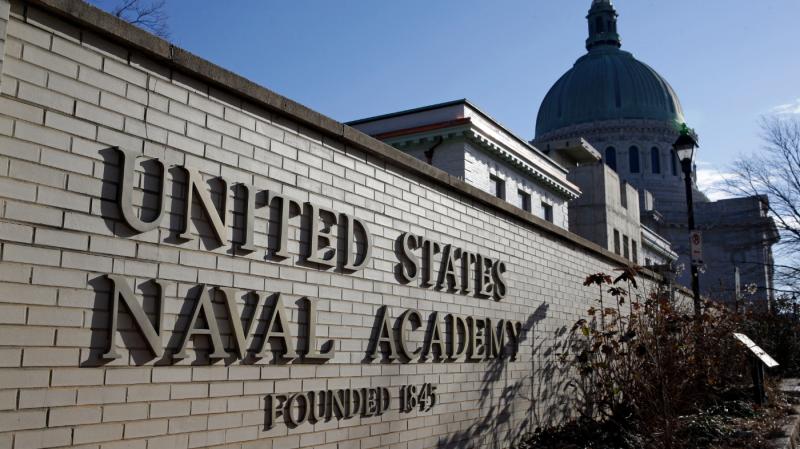Hegseth's 'Big Brother' book purge models the worst of McCarthyism



by Steven Lubet, opinion contributor - 04/15/25 7:00 AM ET
The U.S. Naval Academy has had a library since the day it was founded in Annapolis, Md. in 1845. Its history had been one of steady expansion and wide inclusion until last month, when Defense Secretary Pete Hegseth ordered the removal of suspect books.
Hegseth was not the first Republican figure to demand a library purge. That was the disgraced Roy Cohn, Sen. Joe McCarthy's henchman and President Trump's early mentor.
Hegseth was, however, the first to insist that future military officers could be harmed by exposure to the wrong books. In fact, the most famousfive-star general in U.S. history once took a decidedly contrary view.
The Naval Academy's initial curriculum included mathematics, navigation, gunnery, chemistry and interestingly, natural philosophy, for which the original 50 midshipmen could study from the 400 books housed in the superintendent's office.
The library expanded over the ensuing 180 years, moving from location to location until 1973, when the collection was consolidated in the new building of the Nimitz Library. It now holds over 500,000 print books,as well as ebooks, periodicals, databases and videos, both scholarly and popular.
The Annapolis administration at firstbelieved that the college-level academy was not subject to President Trump'sexecutive order requiring the removal of books related to diversity, equity and inclusion themes from K-12 libraries.
Hegseth, however, thought differently. His office informed the Naval Academy that Trump's order applied in full.
The academy had no choice but to acquiesce, announcing its full commitment "to executing and implementing all directives outlined in executive orders," and undertaking a review of "the Nimitz Library collection to ensure compliance."
The review yielded a list of381 books, evidently deemed too dangerous to remain on the shelves. One of the banned books is poet Maya Angelou's best-selling memoir "I Know Why the Caged Bird Sings."
Othersinclude studies of lynching in the South, the history of the Ku Klux Klan, the Holocaust, Weimar-era Germany, anti-Asian racism, gender studies, Mormonism and several books about Muslim and Palestinian Americans. Coinciding with Trump's campaign of political retribution, the list also includes Stacey Abrams's "Our Time Is Now."
A Navyspokesperson explained that the purge was part of "the Naval Academy's mission … to develop midshipmen morally, mentally and physically in order to cultivate honorable leaders, create a culture of excellence, and prepare them for careers of service to our country."
In 1953, Cohn went on a similar mission at the behest of his boss, McCarthy. He was tasked with investigating the libraries at U.S. cultural centers in Europe for the purpose of removing purported "communist" books from the shelves.
Needless to say, Cohn declared that he found what he was looking for, declaring that the libraries were "fairly teeming with anti-American, pro-Soviet books written by Communists and fellow travelers."
At one stop on the multi-city tour, Cohn proudly displayed "The Maltese Falcon," by the mystery writer Dashiell Hammett, as "proof that there were indeed Communists represented in the American library." He did not mention that the 1941 film adaptation had been nominated for three Academy Awards, having done no damage to the morals or citizenship of American movie-goers in the 12 years since its release.
McCarthy himselfpromised to "pin down" those who were "directly responsible" for "placing the U.S. stamp of approval on a vast number of well-known Communist authors." Predating Hegseth by 72 years, Secretary of State John Foster Dulles ordered the removal of many books "stocked in our libraries throughout the world."
Although McCarthy did not then have a fraction of Trump's power today, the U.S. Senate nonetheless embraced his efforts to purge intolerable reading matter. His Senate Committee on Government Operations unanimously endorsed Cohn's finding of "Communist infiltration of our libraries."
It was President Dwight Eisenhower, the former supreme allied commander who led the victory in World War II, who finally repudiated political censorship.
In anaddress at the 1953 Dartmouth College commencement, he urged the graduates, "Don't join the book burners." Instead, he told them, "Don't be afraid to go in your library and read every book."
It is shameful that Naval Academy midshipmen are being given a very different message from the Trump administration.
McCarthy finally met his downfall in what became known as theArmy-McCarthy hearings, when he attacked the loyalty of military officers. Perhaps today's military leaders will eventually take a similar stand for their own freedom of thought.
Publicly posting the names and authors of the Naval Academy's 381 banned books may even have been intended as a small act of resistance. And at least the forbidden volumes have not been burned or shredded, butmerely "placed in a room where library patrons cannot access them," leaving open the possibility of restoration.
In the meantime, Hegseth has earned for himself perhaps the best-known rebuke from the McCarthy era: "Have you no sense of decency, sir, at long last? Have you left no sense of decency?"
Steven Lubet is the Williams Memorial Professor Emeritus at the Northwestern University Pritzker School of Law.

Tags
Who is online
31 visitors

It should be patently obvious to everyone that McCarthyism has continued to exist In America notwithstanding the exposing of McCarthy and Cohn by Edward R. Murrow. It exists right here on NT, even today, so you need not go far to see it.
Oh, I think the Navy and Marine Corps survive just fine.
So suddenly banning books is a bad thing?